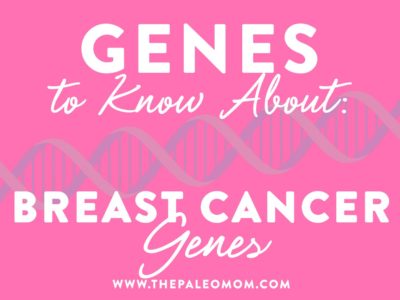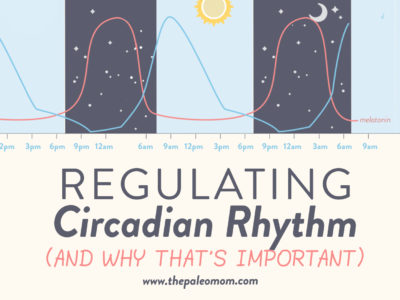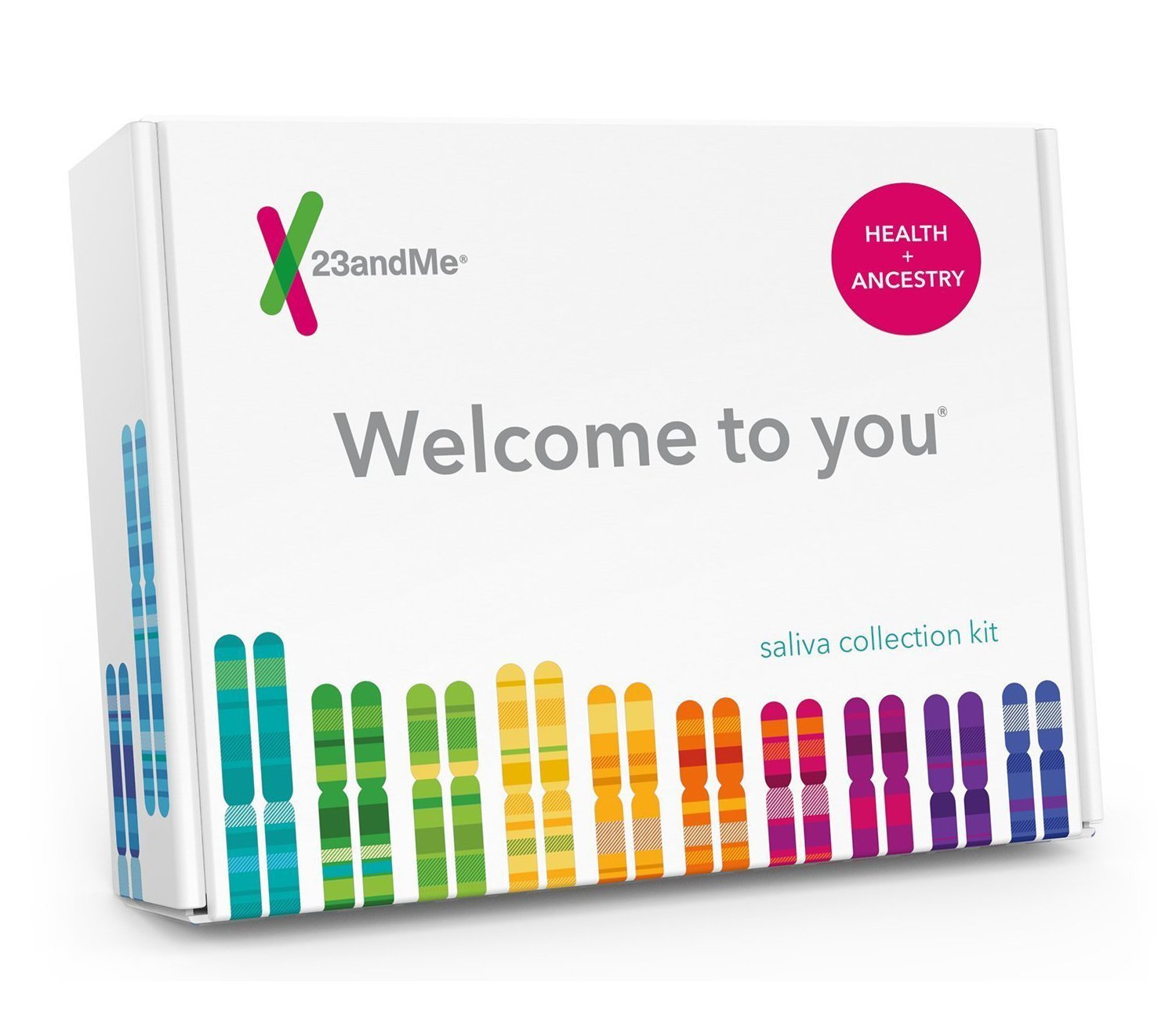 Genetic testing can give us tremendous insight into our own health and, more importantly, our optimal diet and lifestyle choices given our genetic predisposition. I’ve long held that the Paleo diet is far from a one-size-fits-all approach and try to steer away from Paleo dogma in all of my writing. In this series, I’ll be covering specific genes that can tell us a lot about disease risk and how we can modify our implementation of Paleo to mitigate that risk. You may be able to request genetic testing through your doctor (my functional medicine doctor ran genetic screening on me as part of my first evaluation) or you can order a genetic test to do at home. I recommend 23andMe which you can purchase here.
Genetic testing can give us tremendous insight into our own health and, more importantly, our optimal diet and lifestyle choices given our genetic predisposition. I’ve long held that the Paleo diet is far from a one-size-fits-all approach and try to steer away from Paleo dogma in all of my writing. In this series, I’ll be covering specific genes that can tell us a lot about disease risk and how we can modify our implementation of Paleo to mitigate that risk. You may be able to request genetic testing through your doctor (my functional medicine doctor ran genetic screening on me as part of my first evaluation) or you can order a genetic test to do at home. I recommend 23andMe which you can purchase here.
Table of Contents[Hide][Show]
Breast Cancer Genes
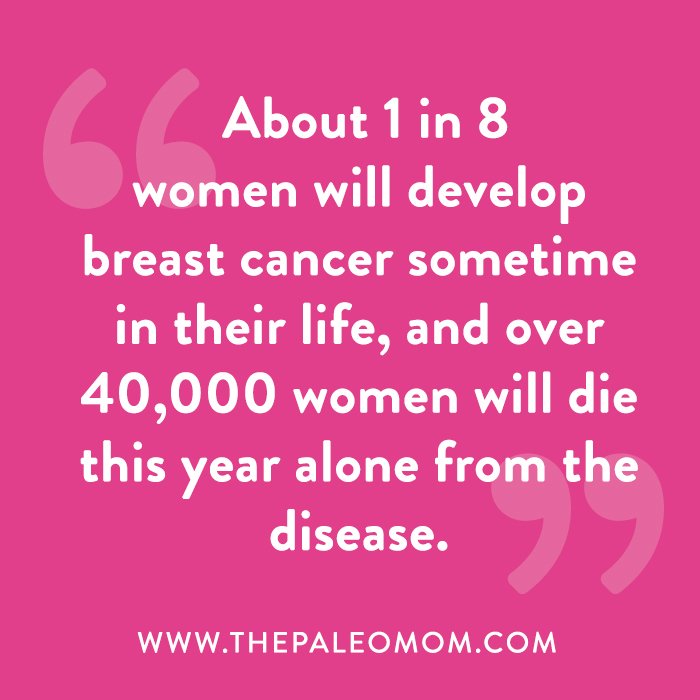
For many women, the words “breast cancer” are enough to evoke feelings of dread, anxiety, sadness, and most of all, fear. After all, about 1 in 8 women will develop breast cancer sometime in their life, and over 40,000 women will die this year alone from the disease. Those are scary statistics, and for those of us who personally know somebody who has battled breast cancer (or if we’ve faced the fight ourselves), those numbers become all the more real.
For that reason, knowledge of the so-called “breast cancer genes” can be both empowering and scary. The genes BRCA1 and BRCA2 produce tumor suppressor proteins that help repair damaged DNA, in turn keeping our cells’ genetic material safe. Certain mutations of these genes can result in faulty production of tumor suppressor proteins, preventing our bodies from properly repairing DNA damage. The result is an increase in genetic alterations that can eventually lead to cancer.
Save 80% Off the Foundations of Health
Expand your health knowledge on a wide range of topics relevant to you, from how to evaluate scientific studies, to therapeutic diet and lifestyle, to leaky gut and gut microbiome health, to sustainable weight loss, and much more!!!
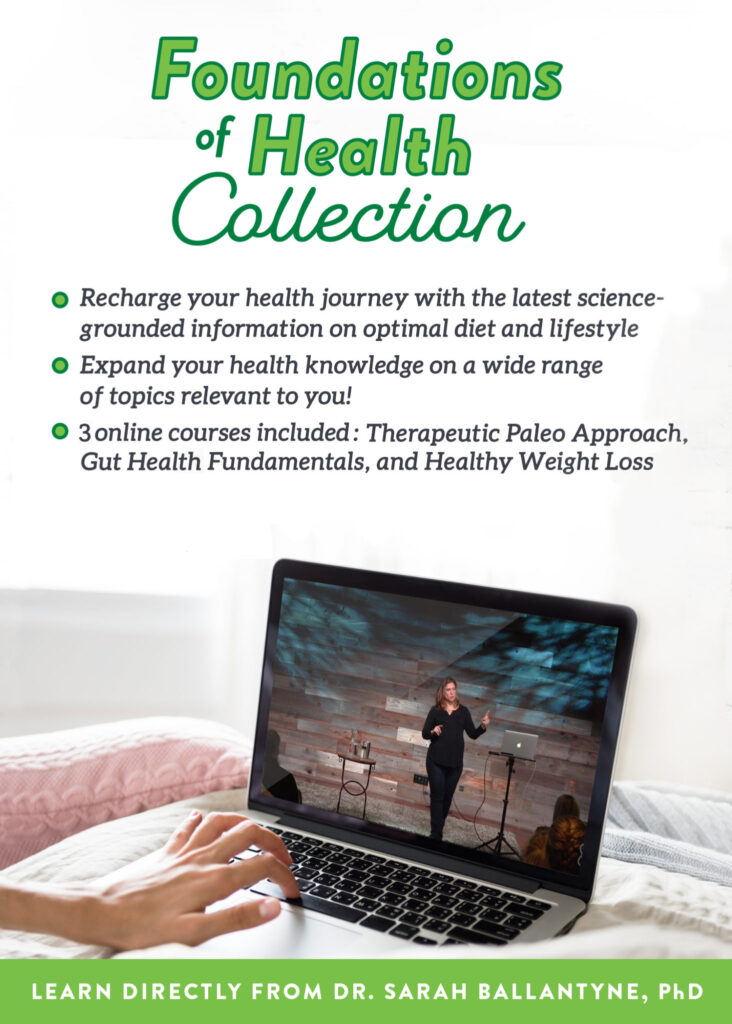
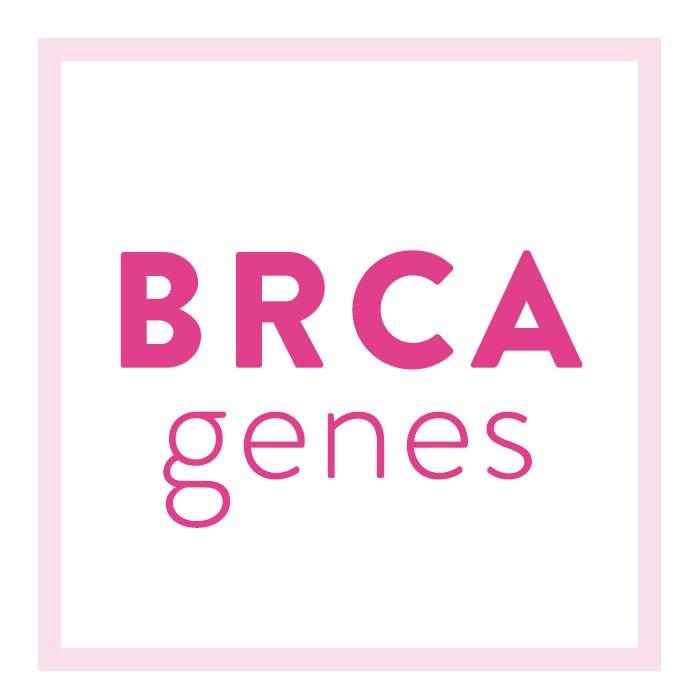 Just how much do BRCA mutations increase our cancer risk? Different studies yield different results, but the most recent estimates are:
Just how much do BRCA mutations increase our cancer risk? Different studies yield different results, but the most recent estimates are:
- 72% of women who have a BRCA1 mutation will develop breast cancer by the time they’re 80 years old (compared to 12% of women in the general population).
- 69% of women who have a BRCA2 mutation will develop breast cancer by the time they’re 80 years old.
- 44% of women who have a BRCA1 mutation will develop ovarian cancer by the time they’re 80 years old (compared to 1.3% of women in the general population).
- 17% of women who have a BRCA2 mutation will develop ovarian cancer by the time they’re 80 years old.
- BRCA1 and BRCA2 mutations also appear to increase the risk of certain other cancers, including fallopian tube cancer and peritoneal cancer.
Even in men, carrying a BRCA mutation, aka a breast cancer gene, can significantly increase the risk of male breast cancer, as well as prostate cancer. This is especially true in the case of BRCA2 mutations.
Who Should Test for Breast Cancer Genes?
 A variety of tests exist to help determine whether we carry a cancer-associated BRCA mutation—some of which we can order through our doctor, and some of which we can order and do at home (such as the genetic testing offered by 23andMe). However, because BRCA mutations (breast cancer genes) are relatively rare in the general population, such tests are mostly recommended for people who are most likely to be carriers. Those include:
A variety of tests exist to help determine whether we carry a cancer-associated BRCA mutation—some of which we can order through our doctor, and some of which we can order and do at home (such as the genetic testing offered by 23andMe). However, because BRCA mutations (breast cancer genes) are relatively rare in the general population, such tests are mostly recommended for people who are most likely to be carriers. Those include:
- Ashkenazi Jews, who have a much higher prevalence of BRCA mutations than the rest of the population (to a lesser extent, people of Dutch, Icelandic, or Norwegian ancestry also tend to have a higher prevalence)
- Blood relatives of women who have previously been diagnosed with breast cancer, ovarian cancer, fallopian tube cancer, or peritoneal cancer
- Blood relatives of people who have tested positive for cancer-associated BRCA mutations
- Women under the age of 50 who have been diagnosed with breast cancer
- Women who have multiple types of breast cancer
- Women who have both breast cancer and ovarian cancer running in their families
In any of the above cases, testing for breast cancer genes, BRCA1 and BRCA2 mutations, can help confirm whether or not someone is at significantly higher risk of developing breast cancer, ovarian cancer, and other cancers. And, that knowledge can help us safeguard against cancer by impacting the way we manage our risk.
What If You Have Breast Cancer Genes?
 For example, someone who tests positive for a BRCA mutation may want to undergo more frequent breast cancer screening or begin screening at a younger age. In cases where cancer risk is extremely high, some women have chosen to undergo prophylactic surgery that removes at-risk tissue from the breast, ovaries, or fallopian tubes (however, these surgeries are extreme and don’t guarantee that cancer will never develop, although they do tend to reduce mortality in BRCA mutation carriers). Women already diagnosed with breast cancer can benefit from knowing whether they carry BRCA mutations, because this can influence the optimal course of treatment for their specific cancer.
For example, someone who tests positive for a BRCA mutation may want to undergo more frequent breast cancer screening or begin screening at a younger age. In cases where cancer risk is extremely high, some women have chosen to undergo prophylactic surgery that removes at-risk tissue from the breast, ovaries, or fallopian tubes (however, these surgeries are extreme and don’t guarantee that cancer will never develop, although they do tend to reduce mortality in BRCA mutation carriers). Women already diagnosed with breast cancer can benefit from knowing whether they carry BRCA mutations, because this can influence the optimal course of treatment for their specific cancer.
Consuming a diet rich in fiber, phytochemicals, and antioxidants (and low in inflammatory items like heavily processed foods and vegetable oils—hello, Paleo diet!) could take higher priority, due to the proven benefits of this type of eating pattern for cancer protection. The Paleo diet is known to reduce all-cancer mortality by 28% (see Paleo Diet Clinical Trials and Studies), and this could be boosted even more with an even greater focus on high-veggie intake (the number one dietary factor that reduces cancer risk). Sometimes, knowing we have a genetic risk for a serious disease can strengthen our commitment to healthy diet and lifestyle choices.
It’s important to note that some people prefer not to know whether or not they carry breast cancer genes due to the added anxiety and fear the knowledge of a positive result can bring. Carrying a BRCA mutation is neither a death sentence nor a guarantee that cancer will ever develop, but simply knowing we have an elevated risk can have a huge psychological and emotional impact! Before undergoing testing, it may be worthwhile to talk to a genetic counselor to make sure a BRCA screening is the right way to go.
Citations
Antoniou A, et al. “Average risks of breast and ovarian cancer associated with BRCA1 or BRCA2 mutations detected in case series unselected for family history: A combined analysis of 22 studies.” American Journal of Human Genetics. 2003;72(5):1117–1130.
Birt DF, et al. “Dietary agents in cancer prevention: flavonoids and isoflavonoids.” Pharmacol Ther. 2001 May-Jun;90(2-3):157-77.
Campeau PM, et al. “Hereditary breast cancer: New genetic developments, new therapeutic avenues.” Human Genetics. 2008;124(1):31–42.
Domchek SM, et al. “Association of risk-reducing surgery in BRCA1 or BRCA2 mutation carriers with cancer risk and mortality.” JAMA. 2010;304(9):967–975.
Easton DF. “How many more breast cancer predisposition genes are there?” Breast Cancer Research. 1999;1(1):14–17.
Kuchenbäcker KB, et al. “Risks of Breast, Ovarian, and Contralateral Breast Cancer for BRCA1 and BRCA2 Mutation Carriers.” JAMA. 2017 Jun 20;317(23):2402-2416. doi: 10.1001/jama.2017.7112.
Pal T, et al. “BRCA1 and BRCA2 mutations account for a large proportion of ovarian carcinoma cases.” Cancer. 2005; 104(12):2807–16.
Pierce JP, et al. “Influence of a diet very high in vegetables, fruit, and fiber and low in fat on prognosis following treatment for breast cancer: the Women’s Healthy Eating and Living (WHEL) randomized trial.” JAMA. 2007 Jul 18;298(3):289-98.
Rock CL. “Diet and breast cancer: can dietary factors influence survival?” J Mammary Gland Biol Neoplasia. 2003 Jan;8(1):119-32.
Tai YC, et al. “Breast cancer risk among male BRCA1 and BRCA2 mutation carriers.” Journal of the National Cancer Institute. 2007;99(23):1811–1814.
Whalen KA, et al. “Paleolithic and Mediterranean Diet Pattern Scores Are Inversely Associated with All-Cause and Cause-Specific Mortality in Adults.” J Nutr. 2017 Apr;147(4):612-620.

